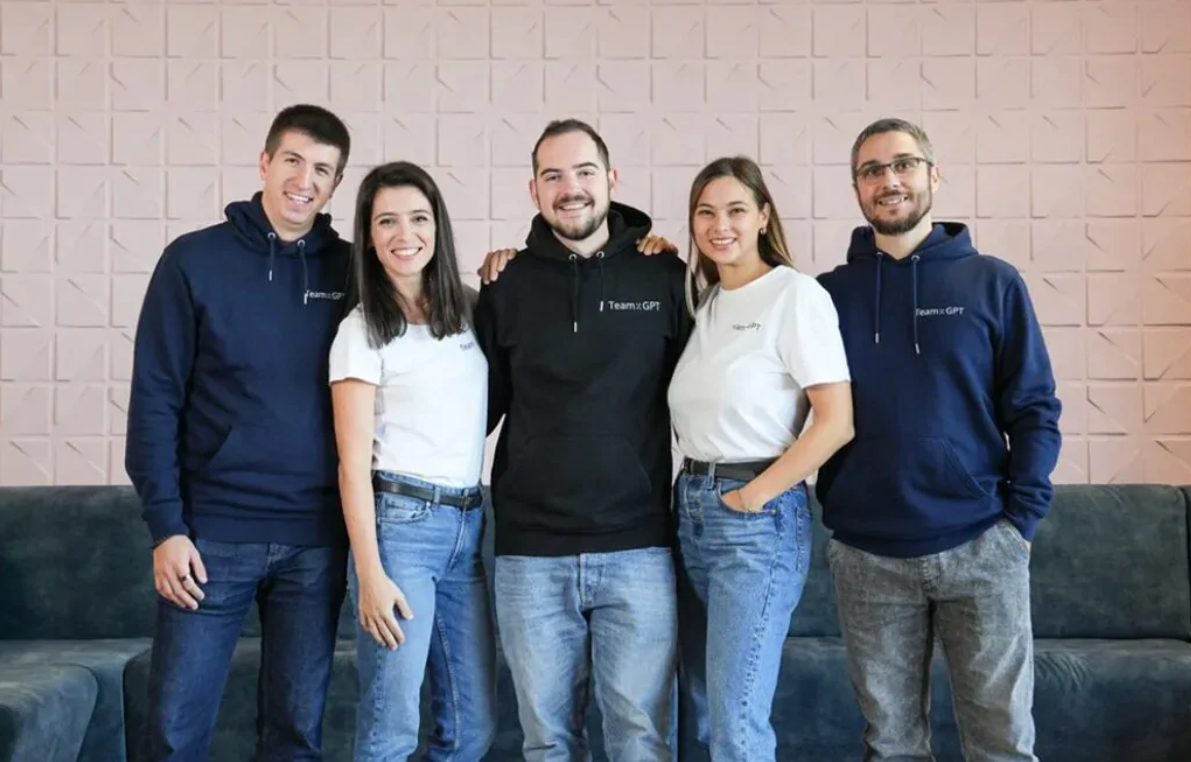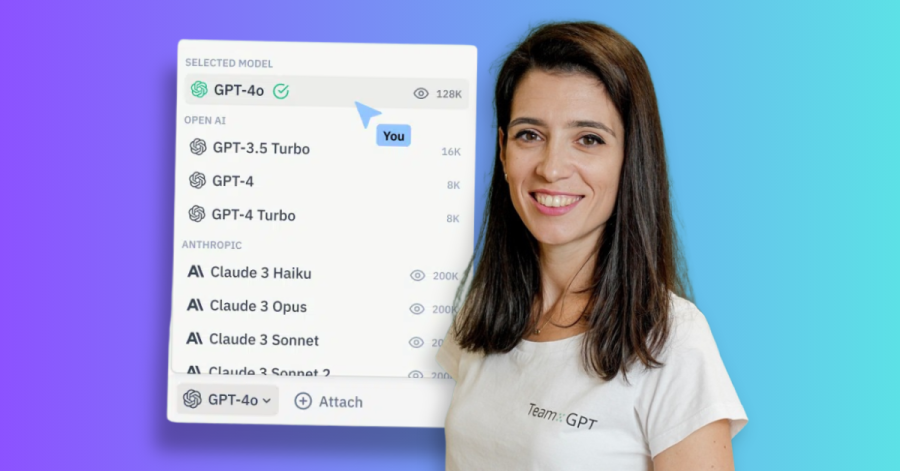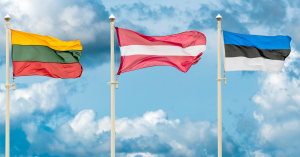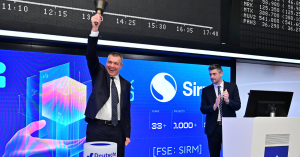Last November, we witnessed the largest seed funding round in the history of the Bulgarian tech ecosystem. Moreover, the $4.5 million investment was led by the Silicon Valley-based venture capital firm True Ventures, with participation from Pact and prominent angel investors, including former OpenAI employees. And yes, it’s all about AI.
In April 2023, the five co-founders of Bulgarian startup Team-GTP found themselves facing a peculiar challenge. While working on a different project, GPT-4 had just launched, but there was no effective way for them to collaborate using the new OpenAI model. Each had their own subscriptions but no shared space to exchange ideas or use GPT-4’s capabilities collectively.
“We needed a tool for our work, but it simply didn’t exist,” recalls Katya Vaptsarova, COO and co-founder of Team-GTP. “That’s when Ilko (Kacharov) and Yavor (Belakov), our technical geniuses, decided to code a solution for us. What started as a practical fix quickly snowballed into something much bigger.”
The initial prototype solved their problem, and the team saw its potential. They searched for a domain name, landing on team-gpt.com, which they purchased for just $10. “We had nothing to lose,” says Katya. “In a week or two, we were ready to sell — though we didn’t even have a finished product yet.”
Reflecting on their journey, the COO describes the early days as a period of experimentation and adjustment. “We all wore multiple hats — building the website, doing QA, and more. Now, my role focuses on financials, HR, legal matters, and partnerships. It’s still a lot, but everything feels more structured.”

Team-GPT founders (from left to right): Yavor Belakov, Katya Vaptsarova, Iliya Valchanov, Maria Valchanova, Ilko Kacharov.
Stepping into Silicon Valley
For nearly a year and a half, Team-GPT operated without external funding. But by late 2023, the team recognized the need for capital to scale.
“Our CEO took the next step,” says Vaptsarova. “He compiled a massive list of venture capital firms in a Google Sheet and began reaching out in December 2023. It was grueling — two weeks in the UK, two months in the US, over 200 calls, and nearly 100 meetings.”
A key connection came through the AI Engineering Foundation, which the team co-founded in Bulgaria. “Through someone we’d never met, we got introduced to True Ventures in Silicon Valley,” recalls Katya. “That connection led to our first term sheet in May 2024. Within two days, we had offers from both a UK and a US fund.”
With funding secured, Team-GPT began expanding its team and product capabilities. “Our dev team is based in Bulgaria, but we have salespeople in Portugal and Norway,” says Vaptsarova.
Katya also highlights their commitment to serving enterprise clients worldwide, while having their core customer base concentrated in the US and Germany. “We focus on larger organizations because we offer the privacy and security they need, including deployment on private clouds,” explains Vaptsarova. “Smaller teams might not see the same value.”
Simplifying AI adoption
When asked about competitors like ChatGPT and Claude, Katya highlights that they are not direct competitors. Why so?
From a technological perspective LLMs can be categorized into several levels based on their development process and application. For example, foundational models, where training costs hundreds of millions, include key players such as OpenAI, Anthropic, Meta, Mistral, and others. Another level is fine-tuning, which is again a space where only big players invest time and resources. It is also the most expensive endeavor, becoming obsolete once a newer foundational model is released (e.g., fine-tuning GPT-4 becomes irrelevant once GPT-5 is released).
“These two levels are extremely expensive and time-consuming,” she adds. For instance, in 2023, OpenAI was reported to offer its researchers an average annual compensation of $865,000, making it one of the highest-paying companies in the AI field, while Anthropic’s average annual compensation for AI researchers was reported at $855,000 in 2023.
Team-GPT would be working on so-to-speak “third level”, or the application layer, as referred to in the VC world.
“We use their models within our platform. Our mission isn’t to build a new GPT-4; it’s to help people adopt AI more easily, offering integrated switching between models and collaboration features.”
Why use extra tools on top of the existing models?
Anthropic and ChatGPT models are trained on various data, but they often lack domain knowledge, especially particularities of one company processes — or each one of them is better used in different scenarios. For that matter, there is now a growing need of solutions helping with extending models’ knowledge through various methods (e.g. RAG, Retrieval-Augmented Generation) using company data. Team-GPT makes it easier for companies to apply the right AI model for each unique use case, not locking themselves with just ChatGPT, for example.
Additionally, prompting the way users interact with models like ChatGPT, can be enhanced through UX/UI in innovative ways, something TeamGPT excels at and considers a key part of the value they offer.
Ultimately, clients will be able to develop their own models, which will integrate seamlessly into the platform. Katya adds that “building a product isn’t just about coding — it’s about listening to customers, iterating, and sometimes realizing your assumptions were wrong.”
A year and a half after its launch, Team-GPT has reached a valuation of $17.5 million.
“We now have the funds to grow, but to scale even faster, we’ll need more investment down the road,” concludes Vaptsarova.








